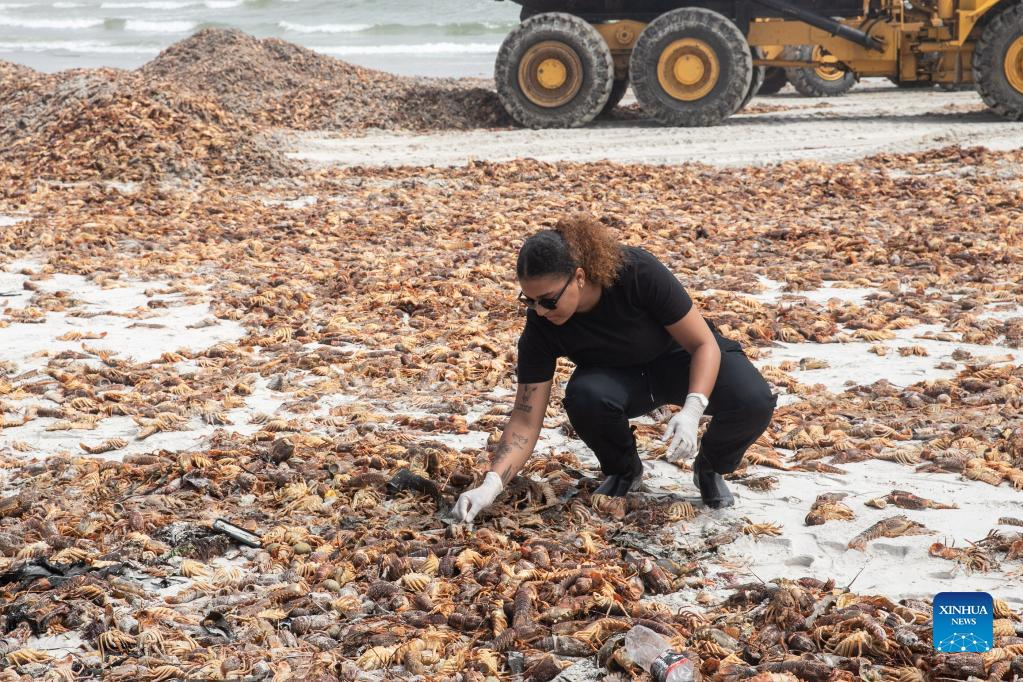
A researcher looks for a specimen on a beach heaped with rock lobsters in West Coast area, Western Cape Province, South Africa, on March 3, 2022. South Africa's environmental department on Wednesday said it has activated a contingency plan and issued a red alert after an estimate of 500-tonne rock lobsters had been spotted on the shore as of Tuesday because of a toxic algal bloom, or red tide. (Xinhua/Lyu Tianran)
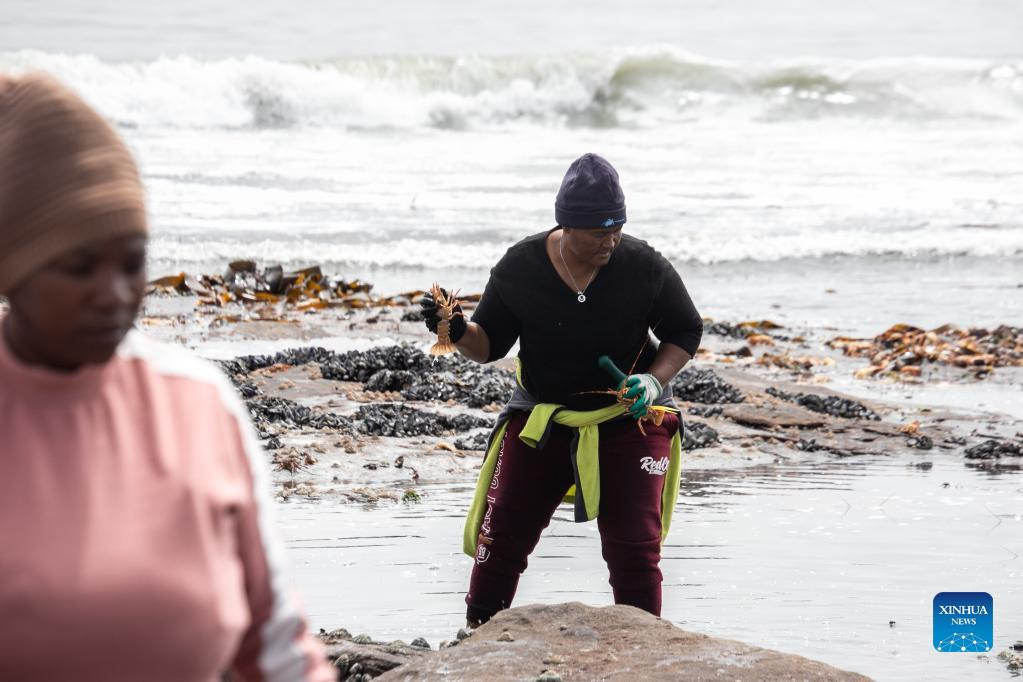
A person clears rock lobsters on a beach in West Coast area, Western Cape Province, South Africa, on March 3, 2022. South Africa's environmental department on Wednesday said it has activated a contingency plan and issued a red alert after an estimate of 500-tonne rock lobsters had been spotted on the shore as of Tuesday because of a toxic algal bloom, or red tide. (Xinhua/Lyu Tianran)
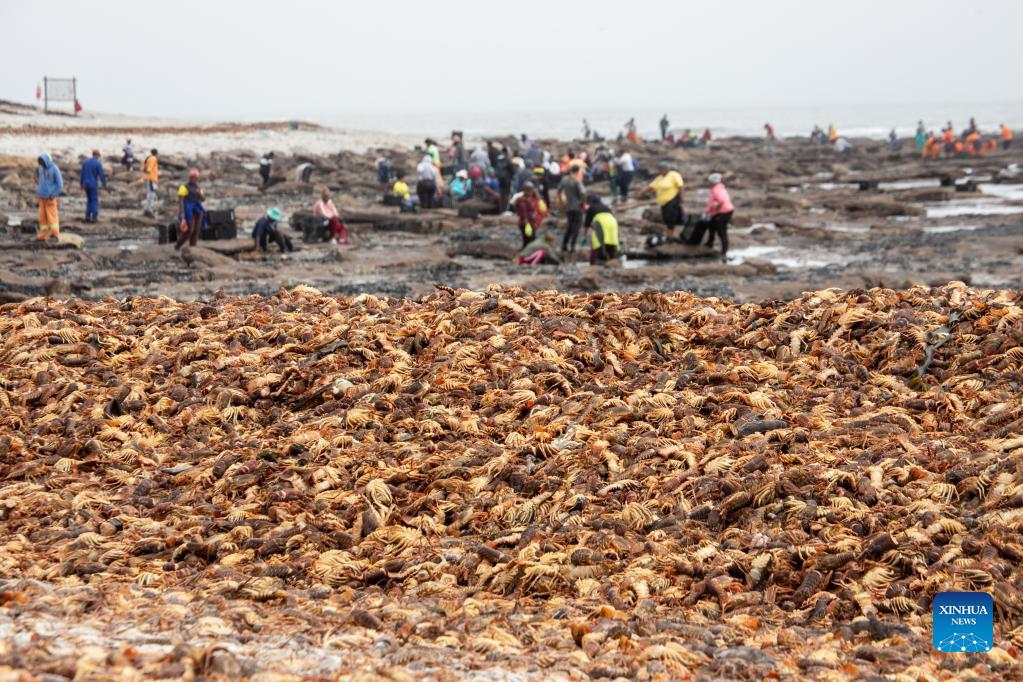
Rock lobsters are seen piled up on a beach in West Coast area, Western Cape Province, South Africa, on March 3, 2022. South Africa's environmental department on Wednesday said it has activated a contingency plan and issued a red alert after an estimate of 500-tonne rock lobsters had been spotted on the shore as of Tuesday because of a toxic algal bloom, or red tide. (Xinhua/Lyu Tianran)
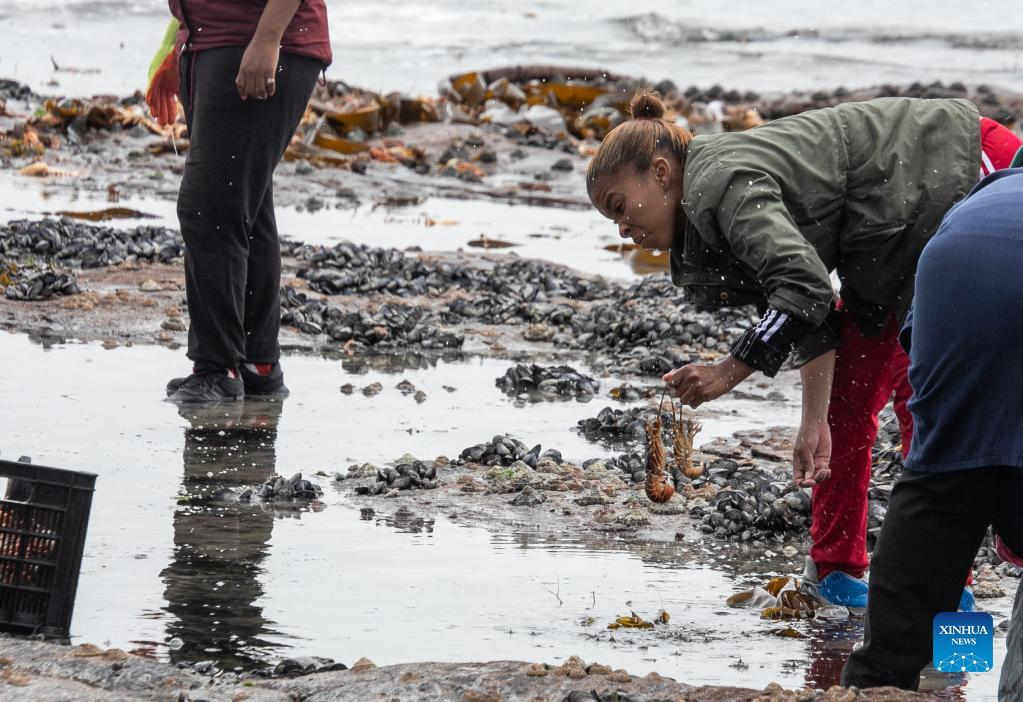
People clear rock lobsters on a beach in West Coast area, Western Cape Province, South Africa, on March 3, 2022. South Africa's environmental department on Wednesday said it has activated a contingency plan and issued a red alert after an estimate of 500-tonne rock lobsters had been spotted on the shore as of Tuesday because of a toxic algal bloom, or red tide. (Xinhua/Lyu Tianran)
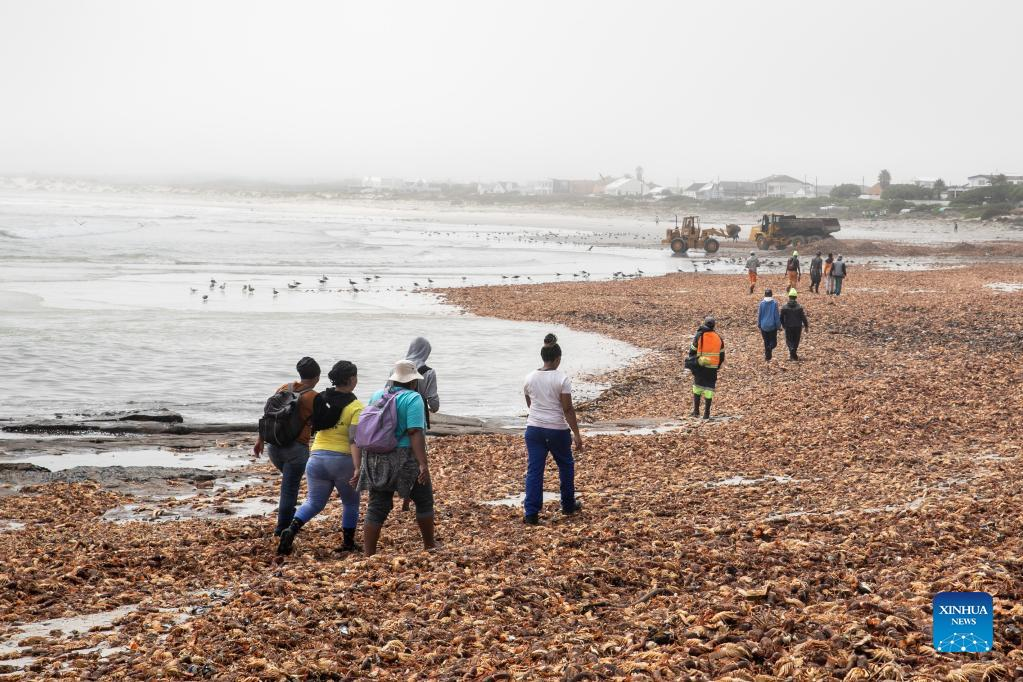
People walk on a beach heaped with rock lobsters in West Coast area, Western Cape Province, South Africa, on March 3, 2022. South Africa's environmental department on Wednesday said it has activated a contingency plan and issued a red alert after an estimate of 500-tonne rock lobsters had been spotted on the shore as of Tuesday because of a toxic algal bloom, or red tide. (Xinhua/Lyu Tianran)
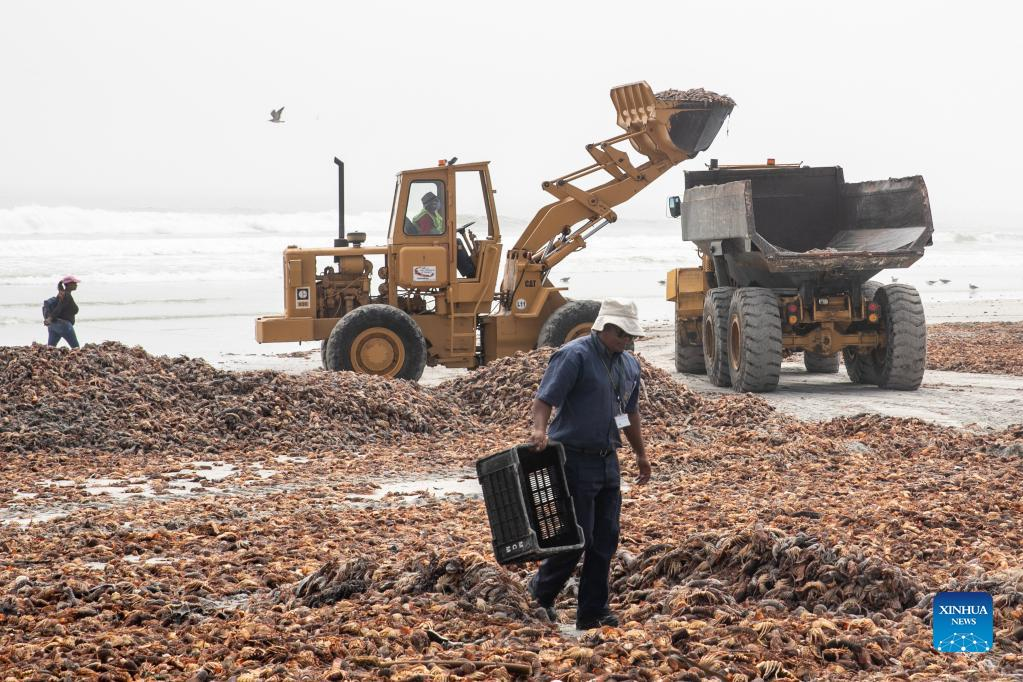
People clear rock lobsters on a beach in West Coast area, Western Cape Province, South Africa, on March 3, 2022. South Africa's environmental department on Wednesday said it has activated a contingency plan and issued a red alert after an estimate of 500-tonne rock lobsters had been spotted on the shore as of Tuesday because of a toxic algal bloom, or red tide. (Xinhua/Lyu Tianran)
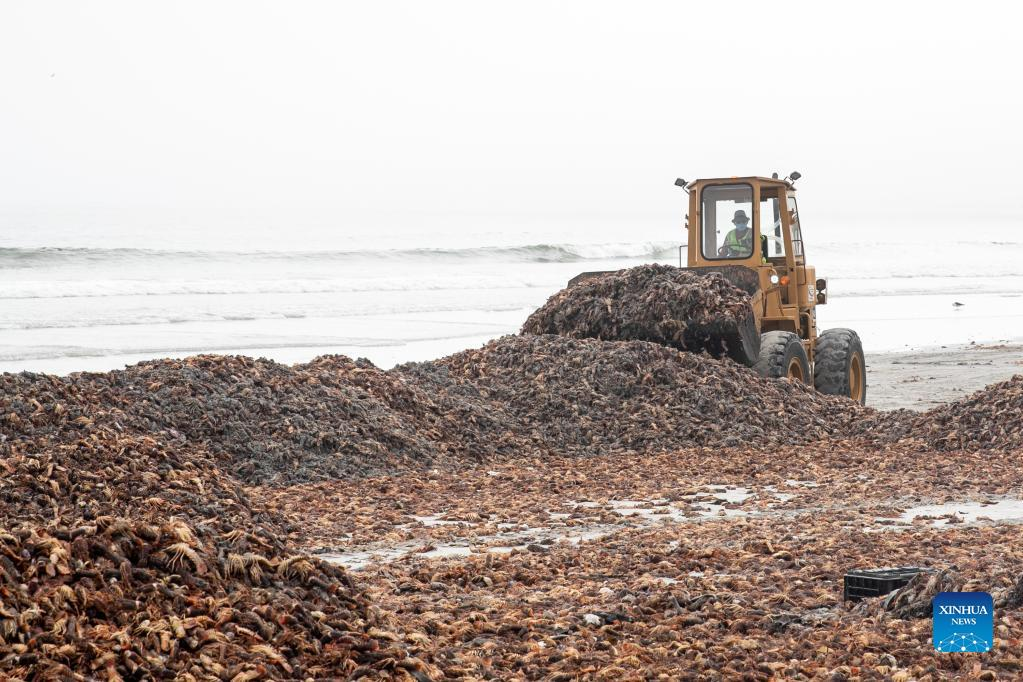
A bulldozer clears rock lobsters on a beach in West Coast area, Western Cape Province, South Africa, on March 3, 2022. South Africa's environmental department on Wednesday said it has activated a contingency plan and issued a red alert after an estimate of 500-tonne rock lobsters had been spotted on the shore as of Tuesday because of a toxic algal bloom, or red tide. (Xinhua/Lyu Tianran)
